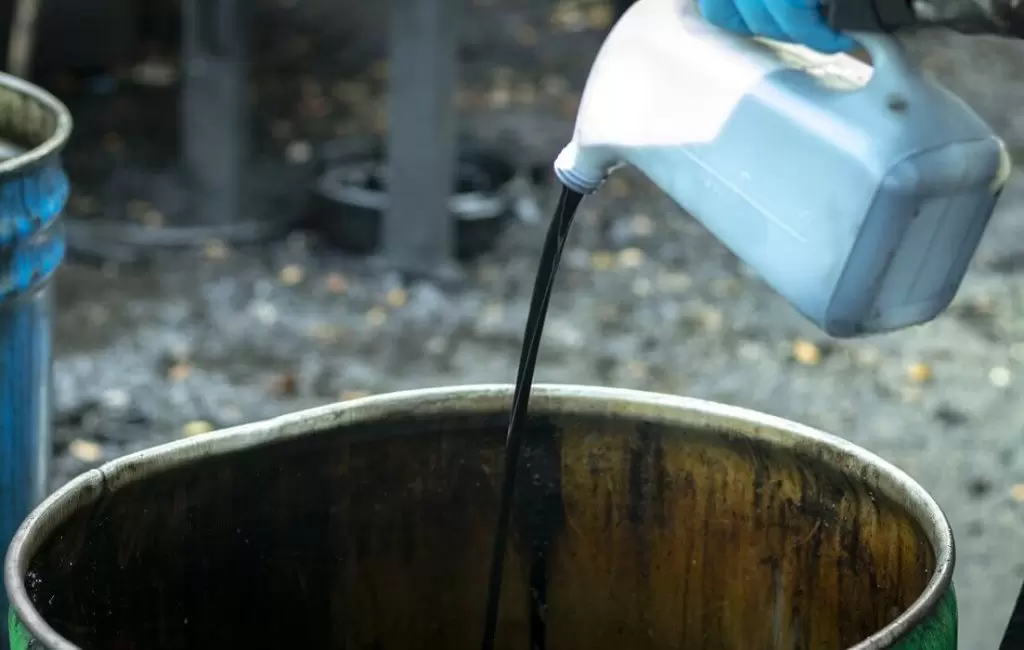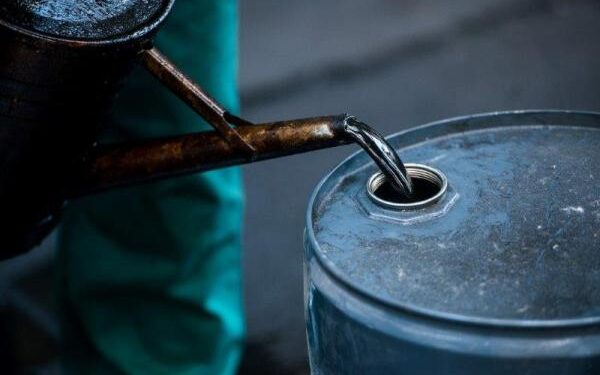Oil, grease, and fat are all classified as oil-based components and have a wide range of applications, ranging from use in the kitchen for preparing food to a maintenance of machine moving parts. However, they must be discarded after use, just like any other item. The improper disposal of waste oil can have a wide range of negative consequences for the surrounding environment.
The contamination of soil, groundwater, & surface water sources puts aquatic organisms at risk. Degradation of the used oil is also a gradual process because of the oil’s affinity for many substrates. Waterways or other bodies of water are regularly polluted by waste oil. Oil is insoluble & tenacious, and it may include heavy metals and harmful substances which must be avoided when disposal of waste oil.
It’s always important to remember that leftover oil could be refined as well as recycled multiple times, and that it can still be used for other purposes after it’s been disposed of. It also has its advantages, as previously stated. Here are ten excellent methods of waste disposal, as well as the advantages of recycling and reusing oil.
10 Excellent Methods Of Waste Oil Disposal

1. Properly Storing Waste Oil In Order To Facilitate Collection And Recycling
The method of suitable oil disposal begins with the proper storage and transportation of waste oil in the appropriate container. The safest method is to use original containers that were provided with oil during transportation and storage. In addition, the storage container must be tightly sealed to prevent leaks that could be environmentally harmful from occurring.
It is recommended that when selecting a storage container, avoid those that contain antifreeze, paint, or chemicals, especially if someone intends to recycle and reuse the oil. It is also important to ensure that the used oil is transferred carefully into storage container to avoid spillage. It is important to clearly label the storage container after it has been tightly sealed.
2. Be Aware Of Who You’re Disposing Of And How To Dispose Of It Properly
You must first ensure that you understand the waste oil you are disposing of before proceeding with its proper disposal. This will assist you in determining how to properly dispose of it. For example, trying to burn a substance that you’re not even familiar with can expose you to a slew of dangers that are difficult to predict.
It is possible that you’ll need to outsource removal services for some oils despite the fact that you can safely dispose of some oils to heaters and boilers. It is possible to choose safest and most effective technique of disposal once you have gained a thorough understanding of the oil with which you are working.
3. Waste Oil Should Be Stored In A Secure Location
Because you are not probable to discard of the waste oil on the same day that you change it out of your machine, you should make certain that it is stored in a secure location where no one without the necessary information can access it, especially whether there are children or pets in the vicinity. Waste oil must not be stored in the same location as unused oil in order to avoid confusion, especially if the waste oil is stored in a conventional fuel storage facility.
4. Use Of Professional Expertise
If you do not have enough capacity as well as capacity to dispose of a waste oil, you must always contact a waste oil removal company in your area for assistance and advice. The majority of waste oil providers are provided with the appropriate equipment and facilities to ensure that waste oil is disposed of in a safe and effective manner. When utilising such services, the level of skill as well as pricing should be taken into consideration.
5. You Should Not Flush It Down The Toilet Or Into The Septic System
Using cooking oil, grease, or any other type of oil must never be flushed down the toilet or dumped into the sewer system. Drains and sewer lines become clogged as a result of this. It should be stored properly & labelled in the manner described above with the goal of later disposing of it properly, sending this for recycling, or retaining the help of a reputable as necessary.
6. Keep Your Equipment/Vehicle In Good Working Order
The maintenance of ones equipment or vehicle is the first step toward effective waste oil disposal. Keeping a machine or vehicle in good working order makes it easier to clean and reduces the amount of oil that leaks out hence the need for new oil replacement, thereby reducing the amount of used oil that needs to be disposed of.
7. If You’re Using The Oil As Just A Disposal Method, Make Sure To Use The Proper Heater
If you decide to dispose of the oil by combusting it, you must make certain that you use the proper heater for the situation. It is a safe & cost-effective method of recycling used oil and converting it into a more usable product to burn waste oil in a combustion chamber.
But you should make sure you use an effective heater that has been deliberately made for waste oil disposal before you proceed. The waste oil burners were also made of carbon steel and must not be confused with normal boilers, which are made of cast iron and are used for other purposes.
8. Make Use Of Waste Oil Disposal Equipment That Has Been Approved
It is important to note that some waste boilers are just designed to efficiently burn a specific number of different types of oils. Low-quality or unreliable equipment could only burn a small selection of used oils, so it is necessary to invest throughout high-quality equipment to maximise the efficiency of your operation. When purchasing waste oil disposal devices, it is important to ensure that it has been approved by appropriate regulatory bodies. The majority of certified boilers as well as heaters are capable of burning a wide variety of waste oils in a manner that is both safe and effective.
9. Follow The Oil Disposal Procedures That Have Been Established
When disposing of used oil, it is important to follow the manufacturer’s instructions to the letter. If one is unsure of how used oil must be disposed of, it is always best to consult the user manual. There are a variety of features available on different boilers that are made to ensure waste oil disposal. The equipment for some of these applications is designed to make the waste disposal process easier, but it is essential to become technically proficient before using it.
10. Everything Associated In Used Oil Should Be Disposed Of At This Point
When it comes to disposing of waste oil, many people overlook the need to dispose of many other contaminated parts as well. When changing the oil in a vehicle, it is common for people to forget to remove the oil filter, which is a mistake which should not be made in the first place. It is possible that the used oil will have same effect on the environment as such oil filter, because it contains contamination from the used oil. As a result, it is necessary to ensure that it is disposed of in an appropriate manner.







